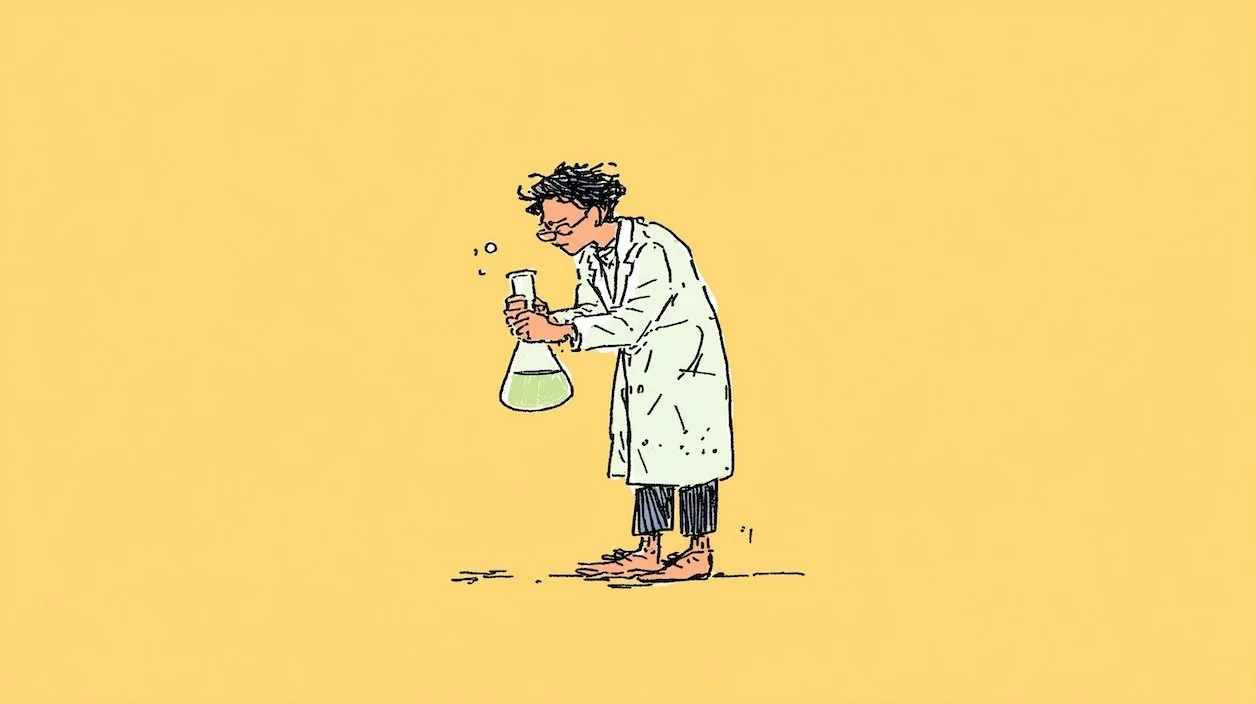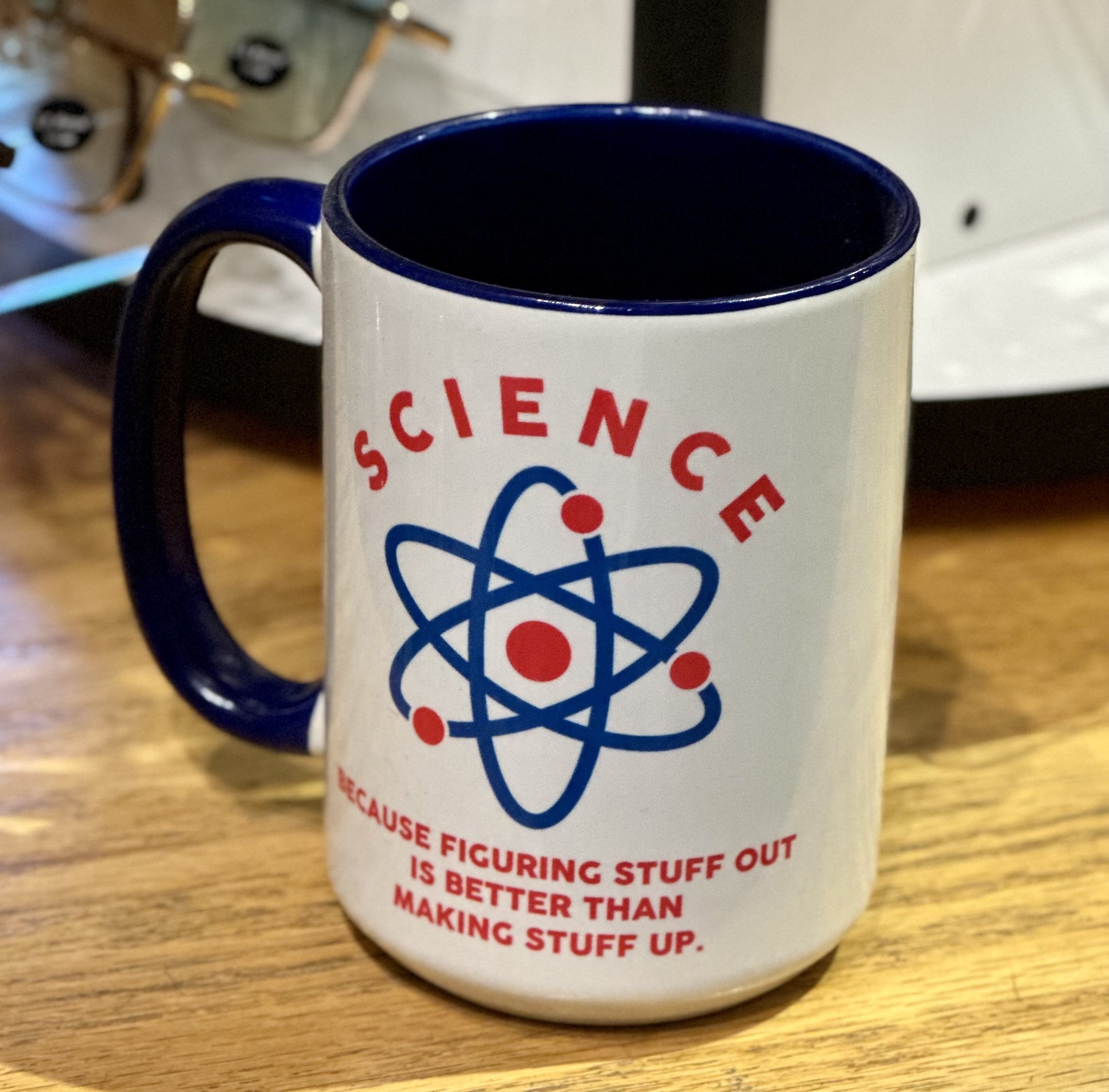Science, Health, and Asparagus Pee
Let’s talk about asparagus pee.
Floating in those fluorescent ripples in the toilet bowl is the whole story of scientific inquiry—and even our journey toward wellness.
Asparagus. Broil it with olive oil, lemon, and a pinch of salt and you’ve got a wonderful vegetable that pairs with almost anything. When it’s in season, I have it nearly every day. I love asparagus.
But an hour or two after eating, I get a pungent reminder of how much I enjoyed it. My pee takes on that nose-wrinkling aroma of sulfur and boiled cabbage. Yuck.
When I was a kid, I had a book filled with weird and wonderful facts about the human body. One of those facts stuck with me: some people produce smelly urine after eating asparagus, and some don’t. I stored this next to all the other useless trivia in my brain and moved on.
Years later, I brought it up at a party and was corrected by a friend who had just covered the topic in med-school. He explained that for a long time, everyone believed only some people produced the odor. But researchers eventually took a closer look and came to a more interesting conclusion.
The first study, back in the 1950s basically involved asking people, “Hey, does your pee smell funny after asparagus?”
Some said yes. Some said no. So the logical assumption was: not everyone has the asparagus pee effect.
Later, in a more carefully controlled study, researchers found that in fact nearly all participants produced the smelly compounds. The difference was in who could smell them. It turns out that if you’re missing certain alleles in your olfactory genes, you can’t detect that signature stinky sulfuric scent.
This became very real for me when my wife and I moved in together. One morning I said, “Sorry about the bathroom. I ate a ton of asparagus last night.” She looked at me blankly and said “Why would that matter?
A few minutes later we were both standing in the bathroom, me saying, “You seriously can’t smell that?” and her replying, “What smell? What are you talking about?”
Wow! Science in action.
Roughly 200 years ago, humanity began applying the scientific method in a structured way. The principle was simple: don’t just assume or accept. Test your ideas. Challenge assumptions. Abandon theories that don’t fit the data. Follow the evidence, even when it’s uncomfortable.
This is the whole premise of science. Sticking to it took us from horse-drawn carts to Mars rovers, from the printing press to the device you’re reading this on.
The asparagus example is a perfect miniature of this process. Everyone thought they understood what was happening. But when we revisited the question with more precision, we found a deeper, more accurate answer. Instead of me and my wife thinking the other was nuts, we learned we were experiencing a documented biological phenomenon. We didn’t have to second-guess each other. We could operate from a base of knowledge and move forward with clarity.
It turns out the asparagus pee story is still evolving . More recent studies suggest the reality is even messier. Some people don’t produce the odor in detectable amounts. Some do. Some can smell it. Some can’t. The phenomenon is a tangle of genetic differences, chemical thresholds, and perceptual quirks. (If you’re really interested, this University of Delaware professor has an exhaustively researched write-up on the phenomenon.)
Think about that. A simple question—“Does asparagus make your pee smell?”—led to a surprisingly complex answer. Now imagine trying to study something far more intricate, like whether a certain food improves health outcomes. The variables explode. Confounding factors multiply. Designing a controlled experiment becomes a nightmare.
This is why exercise and nutrition science often seems contradictory.
In the 1980s, fat was the villain. Now we know that healthy fats are essential. Carbs were once the foundation of the food pyramid. Now we understand that excessive carbs can be a major issue. Steady aerobic exercise was prized for burning fat. Now we see that high-intensity bursts can be even more effective at mobilizing fat stores.
As the consensus shifts, people throw up their hands and say, “Ugh! These scientists can’t make up their minds!”
But those reversals are actually a sign that the system is working. Human bodies are complicated and messy. The science about us is going to be complicated and messy too. Our understanding shifts with each new study. The progress isn’t linear—it’s jagged.
What does this mean for you?
Don’t get whiplash from every nutrition headline. Every week brings a new clickbait study with titles like “High protein diets as risky as smoking!” or “Can seed oils kill you?” If you chase every new finding, you’ll drive yourself crazy.
Let me save you the trouble. I read this stuff constantly so you don’t have to. Here’s the broad view what the best science supports:
Eat a wide variety of fresh foods. Mostly plants. This will meet all your nutritional needs. (And unless you have a specific deficiency, vitamins don’t work.)
Everything else—carbs, meat, dairy, and sweets, should be consumed in moderation. (Alcohol used to be on the moderation list but the best research shows it really is bad in any amount at all.)
Exercise moderately and consistently throughout the week. Include some resistance training to maintain muscle mass and bone density. (Consistent mild exercise always beats inconsistent but intense exercise.)
Don’t smoke. Smoking kills the human. Smoking remains the most thoroughly documented, population-wide self-inflicted harm to health.
Find meaningful activities, preferably with other people and away from screens, so that your brain doesn’t go weird on you.
That’s it. That’s the best of our current understanding. Everything else is noise while the system works to uncover deeper truths.
Maybe in 50 years this advice will look outdated. In 200 years, it might seem as crude as bloodletting. But for now, it’s what we’ve got, and unlike the bad science of old, it’s backed by a mountain of solid research.
I’ll end this post with a photo of a mug I saw in a university bookshop. It beautifully sums up why trusting science is the only way to go!






